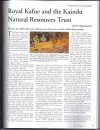slad68
AH elite
I agree. I also had a look at the profiles.
Funny how you are a newmember since 2013.
I also looked for new info on the net. At this stage all I could find is speculations of what actually happened.
Lets wait.
And for the antis, you are more than welcome to participate as long as you have facts to put on the table, hear say is not facts. Most of what I could find was "Apparently" this and Apparently" that, so to copy and past something is not factual in my books.
Funny how you are a newmember since 2013.
I also looked for new info on the net. At this stage all I could find is speculations of what actually happened.
Lets wait.
And for the antis, you are more than welcome to participate as long as you have facts to put on the table, hear say is not facts. Most of what I could find was "Apparently" this and Apparently" that, so to copy and past something is not factual in my books.
 . One member has been here since 2012 and has 3 posts in 3 years, the other has supposedly been a member since 2013, and all his posts have been in re: 'canned' lion hunting.
. One member has been here since 2012 and has 3 posts in 3 years, the other has supposedly been a member since 2013, and all his posts have been in re: 'canned' lion hunting. Trolls.
Trolls.

 i have a sneaking suspicion all your most likely liberal friends would have a shit fit at that.......forced removal, as most would not want to leave their land. now you might not have noticed but their are massive problems at the moment in certain countries, with people who where or say their ancestors were forcibly relocated wanting land returned, even wanting parts of the kruger nat park back........how does that work in your thoughts.......? typical cloud cuckoo thoughts of people with no concept of the reality of the situation.
i have a sneaking suspicion all your most likely liberal friends would have a shit fit at that.......forced removal, as most would not want to leave their land. now you might not have noticed but their are massive problems at the moment in certain countries, with people who where or say their ancestors were forcibly relocated wanting land returned, even wanting parts of the kruger nat park back........how does that work in your thoughts.......? typical cloud cuckoo thoughts of people with no concept of the reality of the situation.